1. Structures
1.1. Unconscious
1.2. Conscious self
1.3. social self
1.3.1. possible self
1.3.2. multiple selves
1.4. archetype
2. Key Concepts
2.1. Life span Identity
2.1.1. Research that Supports
2.1.1.1. Summary
2.1.2. Research that Challenges
2.1.2.1. Summary
2.2. Cultural impact
2.2.1. Research that supports
2.2.1.1. Summary
2.2.2. Research that Challenges
2.2.2.1. Summary
2.3. Societal Impact
2.3.1. Birth Order
2.3.1.1. Research that Challenges
2.3.1.1.1. Summary
2.3.1.2. Research that supports
2.3.1.2.1. Summary
2.4. Psyche
2.4.1. Personal Unconscious
2.4.2. Conscious Ego
2.4.3. Collective Unconscious
2.4.3.1. Archetypes
2.4.3.1.1. Research that supports
2.4.3.1.2. Research that Challenges
3. Strengths
3.1. Emphasis on Self
3.1.1. cope with emotions and drives on the inside and demands of others on the outside
4. Weaknesses
4.1. Hodgepodge of ideas from different traditions
4.2. difficult to test in rigorous manner
5. Personality Disorders
5.1. Striving for Superiority
5.1.1. Inferiority Complex
5.1.2. Superiority Complex
5.1.3. Evolutions of Theory
5.1.3.1. Organ inferiority
5.1.3.2. Aggression Drive
5.1.3.3. Masculine Protest
5.1.3.4. Perfection Striving
5.2. Neurotic Coping Strategies
5.2.1. Moving Towards
5.2.1.1. Affection and Approval
5.2.1.2. A Domineering partner
5.2.2. Moving Against
5.2.2.1. Power
5.2.2.2. Exploitation
5.2.2.3. Recognition and Prestige
5.2.2.4. Admiration
5.2.2.5. Ambition and Acheivement
5.2.3. Moving Away
5.2.3.1. Self-sufficiency
5.2.3.2. Perfection
5.2.3.3. Narrow limits
5.3. Object Relations Theories
5.3.1. Symbiotic Psychotic
5.3.2. Narcissistic Personality Disorder
5.3.3. Normal Symbiotic
6. Key Theortists
6.1. Carl Jung
6.2. Alfred Adler
6.3. Karen Horney
6.4. Erik Erickson
6.5. Other contributing theorists
6.5.1. Margaret Mahler
6.5.2. Heinz Kohut
6.5.3. Marie Snyder
6.5.4. Brian Little
6.5.5. Robert Emmons
6.5.6. Nancy Cantor
6.6. Neo-Freudian
6.6.1. Anna Freud
6.6.2. Heinz Hartmann
7. Idiographic vs. Nomothetic
7.1. Approach is nomothetic
8. Methods
8.1. Variation
8.1.1. free association
8.1.2. situational
8.1.3. autobiographical
8.2. Emphasis
8.2.1. self-concept
